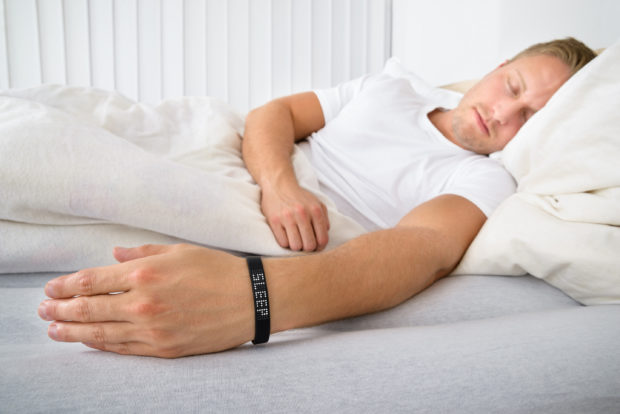Can sleep trackers really help you get a better night’s rest?

Image: AndreyPopov/Getty Images via ETX Studio
Connected devices designed to monitor and therefore improve one’s sleep are becoming increasingly popular around the world, but do they really bring benefits to the user?
Neuroscientists from West Virginia University have been working on the subject. Apple Watch, Fitbit, Oura… In total, the researchers evaluated eight commercial sleep trackers. They observed five healthy adults (two men aged 26 and 41 and three women aged 22, 23, and 27) who wore these trackers for 98 nights.
At the conclusion of the study, published in Nature and Science of Sleep, the verdict was in: Fitbit and Oura obtained the best results, in terms of measuring total sleep time, total wake time, and sleep efficiency. All other connected devices either overestimated or underestimated at least one of the sleep measures studied. The researchers note that none of the eight were able to quantify the different sleep stages with effective accuracy.
However, the neuroscientists remain very cautious about these results; each device may be appropriate for the needs of a particular individual.
“The biggest takeaway is that not all consumer devices are created equal, and for the end user to take care in selecting the technology to suit their application based on the data. Some devices are currently performing well for total sleep time and sleep efficiency, but the community at large seems to still struggle with sleep staging (deep, REM, light). This is not surprising, since typically brain waves are needed to properly measure this,” explained Joshua Hagen, who led the research.
The researchers seem convinced of the importance of such data, despite these results, as they allow an objectivity that one’s own feelings will never provide. The main author explains, for example, that you can wake up groggy if you wake up in a deep sleep phase, which could lead you to think that your sleep has not been restorative.
The onus is now on users to find the device that will be the most accurate according to their own needs, and then turn to a product whose design, price, approach and user-friendliness will suit what they are looking for when it comes to optimal daily use. JB
RELATED STORIES:
How to sleep better during the COVID-19 outbreak
Teen waking up from 11-month coma unaware of COVID-19